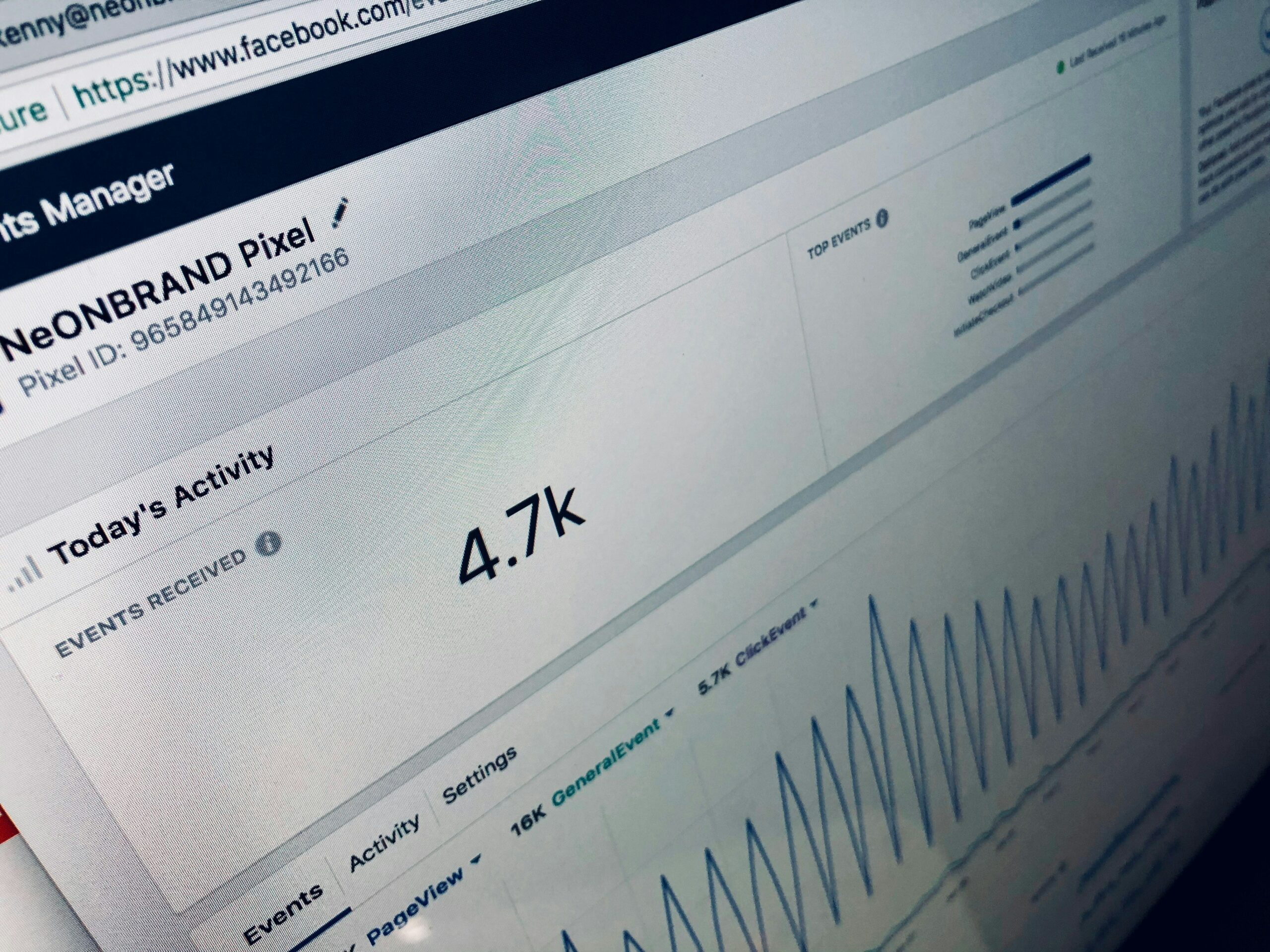Craft Agency Group has streamlined the management of Facebook Ads with efficient strategies, proving that ad campaigns can be managed with better performance and less stress. Keep reading to discover how your agency can benefit from these efficiency hacks.
Key Takeaways
- Auditing Current Ad Management Processes Can Highlight Inefficiencies
- Clear Advertising Objectives Enhance Campaign Effectiveness
- Automated Tools Save Time and Streamline Ad Campaign Management
- Custom and Lookalike Audiences Target Ads More Effectively
- Regular Updates and Training Keep Agencies Ahead in Ad Management
Simplifying Facebook Ad Campaigns: Where to Start

Before refining its Facebook Ads strategy, a company must assess its current management process to reveal inefficiencies. Understanding the frustrations in managing multiple ad accounts and campaigns is key to developing a more streamlined approach that aligns with the client’s brand image and business goals.
Assess Your Current Ad Management Process
At the core of any revamp for Facebook ad campaigns lies a detailed audit of existing methods. By pinpointing where the current funnel falters, be it in customer relationship management (CRM) or data use, an agency sharpens its understanding of what streamlining truly requires. Examining which parameter within the campaign influences conversion the most offers a clear direction for optimization.
Identify Common Pain Points in Managing Ads
An agency’s experience with digital marketing can often be hampered by unanticipated behavior within ad campaigns that disrupt a carefully crafted marketing strategy. Managers grapple with locating specific features or functions within the Ads Manager interface, leading to frustration that trickles down to overall campaign execution. Recognizing these hurdles paves the way for addressing them head-on, ensuring smoother operations and focusing on campaign performance rather than troubleshooting.
Set Clear Objectives for Your Campaigns
When initiating a campaign, advertising objectives must be crystal clear. For a real estate agent looking to maximize their investment in digital advertising, it’s imperative to identify the campaign’s target audience precisely and determine the desired outcomes, whether it’s lead generation or brand awareness. Employing software that aids in tracking these goals is considered best practice, ensuring every effort is aligned with the campaign’s aims.
Choosing the Right Tools for Efficient Facebook Ads Management
The ad landscape is getting more complex, so agencies need effective ad management tools. Comparing tools in the market helps agencies evaluate which offers the most value, especially in integrating with Google Analytics, manipulating UTM parameters, optimizing ads, and improving search outcomes. Features like client reporting and automation are critical for agencies.
Compare Popular Facebook Ad Management Tools
In the hunt for the best Facebook ad management tools, agencies that specialize in web design or education sectors need robust functionalities for tracking lead generation efforts and campaign analytics. Tools that allow customization, easy integration with existing tools, and features like the ability to book a demo instantly can be immense assets to agencies aiming to refine their ad strategies and client interactions.
Evaluate Features Specific to Agency Needs
In shaping Facebook and Google Ads campaigns that don’t just attract leads but convert them, the right features are non-negotiable. Agencies must look for tools that comply with both platforms’ policies, preserve the essence of the community they’re targeting, and deliver timely reports on campaign performance. Focus on utilities that streamline the transition between Facebook campaigns and Google Ads campaigns, ensuring seamless management and better allocation of marketing resources.
- Compliance with Facebook and Google’s advertising policies ensures campaigns run without interruptions.
- Tools that appreciate the community aspect can help tailor campaigns for greater relevance and engagement.
- Integrated reporting functions illuminating Facebook and Google campaign performance empower agencies to swiftly make data-driven decisions.
Implement Automation for Repetitive Tasks
Automation in the realm of Facebook Ads management transforms how agencies handle campaigns, particularly when it intersects with email marketing. By implementing automation, agencies can trigger timely emails based on customer data and interactions, creating a more dynamic and efficient management system. This strategic move allows managers to devote more energy to nuanced aspects of a campaign, such as refining the message and enhancing overall strategy.
Mastering Audience Targeting to Save Time

In the world of Internet advertising, targeting the right audience is crucial for a successful campaign. Facebook’s Audience Insights provides valuable data to help agencies refine their targeting strategies and create tailored marketing approaches.
Meanwhile, Custom Audiences helps agencies tailor messages for specific audience profiles, boosting engagement. Other strategies involve leveraging Lookalike Audiences to reach users with attributes similar to those of existing customers. Integrated tools like the pixel can track user behavior and inform ad copy adjustments within Facebook’s terms of service.
Utilize Facebook’s Built-in Audience Insights
By integrating Facebook’s Audience Insights into the ad strategy, the agency’s sales team can effectively monitor campaign frequency and adjust budget allocations in real-time. This approach not only fine-tunes targeting but also informs the graphic design team on creating visuals that appeal to the audience segments identified through the dashboard‘s data. Thus, campaigns become more cost-efficient and impactful.
Create Custom Audiences for Different Campaigns
Within the bustling social media market, responsible use of Facebook’s interface can help an agency draw the right kind of attention to their clients’ campaigns. By constructing Custom Audiences for each campaign, agencies implement a strategy that caters to the nuanced preferences of different market segments, ensuring that ad content reaches those most likely to engage.
Leverage Lookalike Audiences for Better Reach
Agencies aiming to expand their clients’ reach without excessive ad spend can tap into the potential of Facebook’s Lookalike Audiences. By uploading a list of existing customers’ email addresses into the platform, possibly sourced from a Salesforce database, Facebook analyzes this data through its analytics engine. Afterward, ad managers can log in, create a campaign, and select the Lookalike Audience feature to target new individuals whose interests match those of the uploaded contacts, making it easier to reach similar prospects without needing individual searches or downloads.
Crafting Ad Creative Quickly and Effectively

Accelerating the design process within a Facebook ads strategy is crucial for agencies, especially in competitive areas like real estate. Creating ad templates streamlines the workflow, while dynamic creative features automate optimization. Regular review sessions and refreshing creative elements keep messaging up-to-date and improve campaign results.
Build a Repository of Ad Templates
Having a well-stocked repository of ad templates can significantly reduce the time it takes to create Facebook ads that resonate with the intended audience. By pre-designing templates that align with the brand‘s aesthetic and message, an agency can ensure consistency and reduce costs associated with developing new creatives for each campaign. This approach allows for the quick response when launching a targeted Facebook lead initiative or rolling out new ads through platforms such as ActiveCampaign.
- Pre-design templates to maintain brand consistency.
- Utilize templates to reduce creative development costs.
- Deploy ad templates quickly for Facebook lead campaigns and ActiveCampaign strategies.
Use Dynamic Creative for Automatic Optimization
Incorporating Dynamic Creative is vital for transforming feedback from a landing page into actionable data, quickly refining an advertising campaign’s visual and textual elements. This technology aids agencies in streamlining the onboarding process for new Facebook ads, allowing for real-time adjustments based on user interaction and preferences, thereby elevating the efficiency of ad deployment and optimization.
Schedule Regular Creative Review Sessions
By holding regular creative review sessions, an agency ensures that its ad content remains infused with the latest market information and aligns with strategic planning goals. These sessions, critical for maintaining brand awareness and supporting an estate agent’s campaign, offer a chance to evaluate the effectiveness of visuals and messaging before the next payment cycle. In doing so, the team stays ahead of trends and sharpens its advertising edge.
Streamlining Collaboration Within Your Agency

Managing Facebook campaigns in an agency setting requires well-defined roles and responsibilities for creating lookalike audiences, refining APIs, and setting up ad runs. Clear tasks and collaboration tools streamline processes and provide real-time feedback. Building a shared ad asset library is crucial for organizing workflow and deploying ads across client accounts.
Establish Clear Roles and Responsibilities
In refining the duties within an agency, it’s pivotal that each person understands their role, from the creative team designing a compelling carousel to the data analyst pinpointing the critical target audience. For instance, the accountant must regularly check the advertising spend per campaign to ensure it aligns with the larger goal. At the same time, the web team focuses on optimizing the website for higher conversion rates from the ads.
Utilize Collaboration Tools for Real-Time Feedback
Efficient collaboration is key to effectively managing Facebook Lead Ads and other social media campaigns. Utilizing real-time collaboration tools can enhance communication among team members, streamline the workflow, and provide immediate feedback on campaign elements such as ebook promotions or product launches. These tools are particularly useful when fine-tuning ad targeting based on gender demographics, ensuring that campaigns are launched quickly and effectively.
Set Up a Shared Ad Asset Library
A shared ad asset library can be the backbone of efficiency when creating Facebook ads. It simplifies access to vital resources such as images, video clips, and copy templates, all readily available through a mobile app for teams on the go. This central repository ensures that when an agency gets audience insights indicating a need to run Facebook ads swiftly, they can do so without delays caused by searching for assets or awaiting approvals—which could be as time-critical as finding a misplaced credit card.
- Build a centralized hub for all your advertising materials.
- Use a mobile app to grant your team access to the library anytime, anywhere.
- Ensure fast and efficient creation and launch of Facebook ads campaigns.
Analyzing Data to Make Informed Decisions Faster

Understanding data is key for agencies in Facebook advertising in a landscape where search engine effectiveness is crucial for marketing campaigns. Specialized dashboards and custom reporting help track ad projects and translate complex data into client updates. Automated alerts enable swift responses to performance anomalies, maintaining successful ad initiatives.
Utilize Dashboards for a Clear Overview of Campaigns
To monitor campaign efficacy, agencies use dashboards that offer a panorama of key metrics, such as cost per action, directly related to the amount of money spent on each conversion. This bird’ s-eye view equips marketing teams with the knowledge needed to assess whether they’re attracting the right customer and generating quality leads, ultimately guiding better-informed decision-making and resource allocation.
Implement Custom Reporting for Client Updates
Custom reporting gives agencies a competitive edge by enhancing visibility into the effectiveness of a call to action, which is crucial for driving sales. Scalability is key, as these tailored reports adjust to the size and scope of a campaign, allowing agencies to provide clear, actionable data to clients quickly and maintain an advantage over the competition.
Set Up Automated Alerts for Performance Anomalies
Agencies must ensure their Facebook ad campaigns are cost-effective and client-centric, so setting up automated alerts for performance anomalies is critical. Incorporating alerts into a team’s menu of monitoring tools allows them to respond swiftly to unexpected shifts in cost per lead, thus preserving the customer experience and optimizing Meta ads spending. By programming alerts to notify of unusual changes in campaign metrics or page URL engagements, teams can preemptively address issues, maintaining a smooth and efficient ad operation.
Keeping Up With Facebook Ad Policies and Trends

Agencies must stay informed about the latest policies and trends to succeed in Facebook advertising. Subscribing to industry newsletters, participating in webinars, and engaging with social media marketing groups can provide invaluable knowledge and insights for managing Facebook Ads effectively.
Subscribe to Relevant News and Updates
Agencies can stay informed about changes in Facebook’s advertising environment by subscribing to updates from industry leaders and Facebook’s announcements. This proactive measure keeps the team informed about new policy adjustments and emerging trends, which is essential for adapting strategies quickly and maintaining compliance, thus safeguarding client campaigns from potential disruptions.
Attend Facebook Ads Webinars and Workshops
To stay adept in the dynamic space of Facebook advertising, agencies benefit greatly from attending specialized webinars and workshops. These sessions, delivered directly by Facebook or industry experts, offer actionable insights and advanced techniques tailored to the platform’s latest functionalities.
- Register for official Facebook online training events.
- Seek out workshops led by recognized industry professionals.
- Implement newfound strategies to enhance agency ad campaigns.
Join Social Media Marketing Groups for Insights
For an agency, engaging with social media marketing groups paves the way for shared experiences and collective wisdom. These forums provide a cornucopia of insights and resources drawn from a diverse pool of professionals adept at navigating Facebook’s advertising platform.
- Agencies benefit from the real-world experiences of peers.
- Members exchange the latest tactics and creative strategies.
- Groups serve as a support network for troubleshooting and feedback.
Conclusion
Streamlining Facebook Ads management is vital for agencies to enhance efficiency and campaign results. By choosing the right tools, automating repetitive tasks, and mastering audience targeting, agencies save time and improve campaign focus. Regularly updating ad creatives and collaborating effectively within the team ensure ads remain relevant and impactful. Staying informed on Facebook’s policies and trends enables agencies to make data-driven decisions quickly, keeping them competitive in a dynamic advertising landscape.



